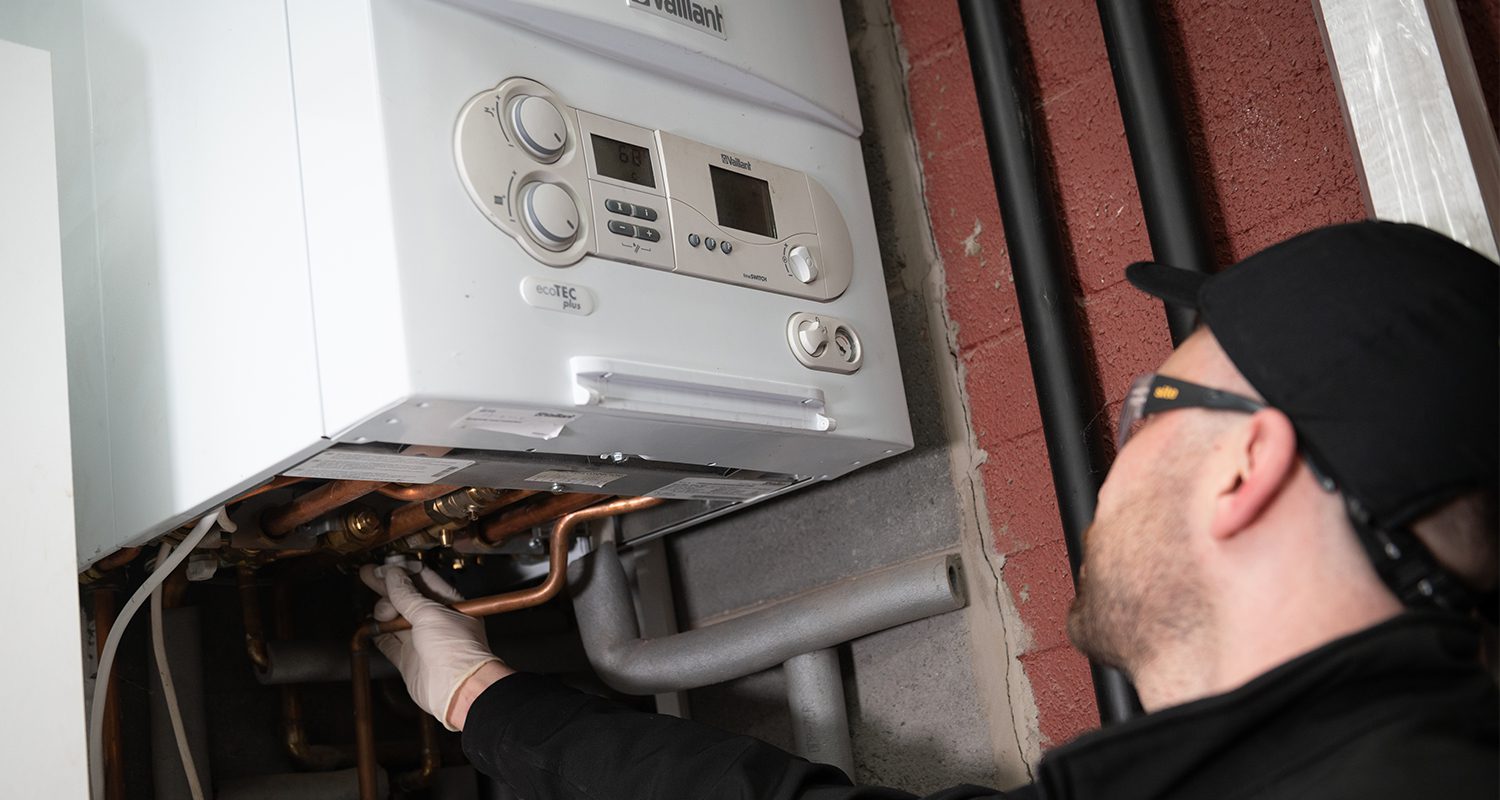A Guide to Boiler Repair – Common problems, DIY fixes and when to call the pros
- Home
- >
- Help & Advice Centre
- >
- A Guide to Boiler Repair
Many boiler problems and repairs are a task for the professionals. However, getting your boiler back to working glory can be a hit on your pocket, and some issues can be solved without the need for expensive call out fees. We’ve outlined five common boiler problems and feasible methods you can try yourself to safely bring your boiler back to life, with advice on when it’s essential to ring the experts.
Typically, on the front of your boiler, you’ll find a water pressure gauge which monitors the balance of water and air within your boiler system.
Simply put, if the pressure on your boiler goes too high or low, it’ll stop working.
The most common cause of high pressure is too much water in the system. You’ll be able to spot this because the needle reading the water pressure gauge will be in the red zone on the dial, the digital boiler reading will be higher than 2.5, or an icon will be flashing.

If the boiler is not already off, switch it off. Check that the pressure valves, usually found underneath your boiler, are closed tightly. They could have come loose or accidentally knocked. If this doesn’t work, drain some water from the system which can be done by ‘bleeding’ your radiators. Attach the key to the square groove in the centre of the valve and turn it slowly anticlockwise. When you a hear a hissing sound, this is trapped air escaping. Use a cloth to catch any water that comes out as it will be hot and then finally tighten the valve back up with the key.
If the pressure is too low, it needs topping up. Turn off the boiler, find the external boiler lever or tap on your boiler known as the filling loop. Only turn the external filling loop until the pressure reaches 1-2 bar on the gauge. If this doesn’t work, do not attempt the internal filling loop; keep the boiler switched off and contact the experts.
If you can’t see the pilot light on your boiler, or the boiler won’t fire up, try to reignite it by following the instructions on your boiler. If you have no physical boiler instructions to hand, most models have instructions available on the internet.
If you smell gas or notice any other signs, such as a change in flame colour or black soot marks on the ceiling or walls around the boiler, don’t try to reignite it. Switch the boiler off and call a professional.
A boiler lockout is a shut-down procedure initiated by your boiler when it detects an issue with one of its components or alternatively with the entire system. Your boiler may not fire up, a lockout (red) light might come on or a fault code could display on its panel.
To solve this issue, you can try and simply reset the boiler by finding the reset button, or switch the boiler off and on at the mains.
Alternatively, if your boiler has a display panel, check out what the fault code is in your boiler manual and try its solution if it’s safe to do so. If you feel at all uncomfortable doing this, or if you think the solution needs expert help, call a heating engineer.
To save energy, turning down the temperature of your boiler is the obvious choice. But if yours is already low, reducing the flow rate of your boiler can save money, depending on the type of boiler you have, what you use
Since 2005, every single boiler in the UK needs to be a condensing boiler, regardless of whether it’s a combi, open vent or a sealed system boiler.
Condensing boilers run on gas or oil, and are designed to help improve energy efficiency. They require an additional pipe to be fitted – usually plastic – to carry wastewater away from the boiler to a household drainage system or soakaway outside. However, these pipes can become frozen or blocked with ice causing the boiler to shut down.
If part of your condensate pipework is outside and does freeze, you might hear a gurgling noise coming from the boiler and your boiler panel, if digital, may read an ‘EA’ error code.
To try and thaw the system, look for your outdoor pipe and if safe to do so, pour warm water – not boiling – along it, then reset your boiler once the pipe has defrosted.
If your boiler is leaking water, this is not a time to be trying any DIY methods. It could mean that the boiler needs an urgent repair by a qualified plumber.
Usually caused by broken parts or loose connections, a leaking boiler can lead to electrical malfunctions and costly repairs and replacements, if not sorted as soon as possible.
What you can do yourself if you spot a leak is turn off your water supply and heating, wipe off any water from the area and contact a professional.
All but the simplest boiler servicing jobs should be left to a qualified gas fitter who is on the CORGI (Council for Registered Gas Installers) register.
If any of the solutions above haven’t solved your boiler problem, at Metro Plumb, we’ve got a team of experts readily available to support all your needs 24/7/365.
We pride ourselves on our speedy service and you can click here to find your local plumber who will get your heating and hot water back up and running.